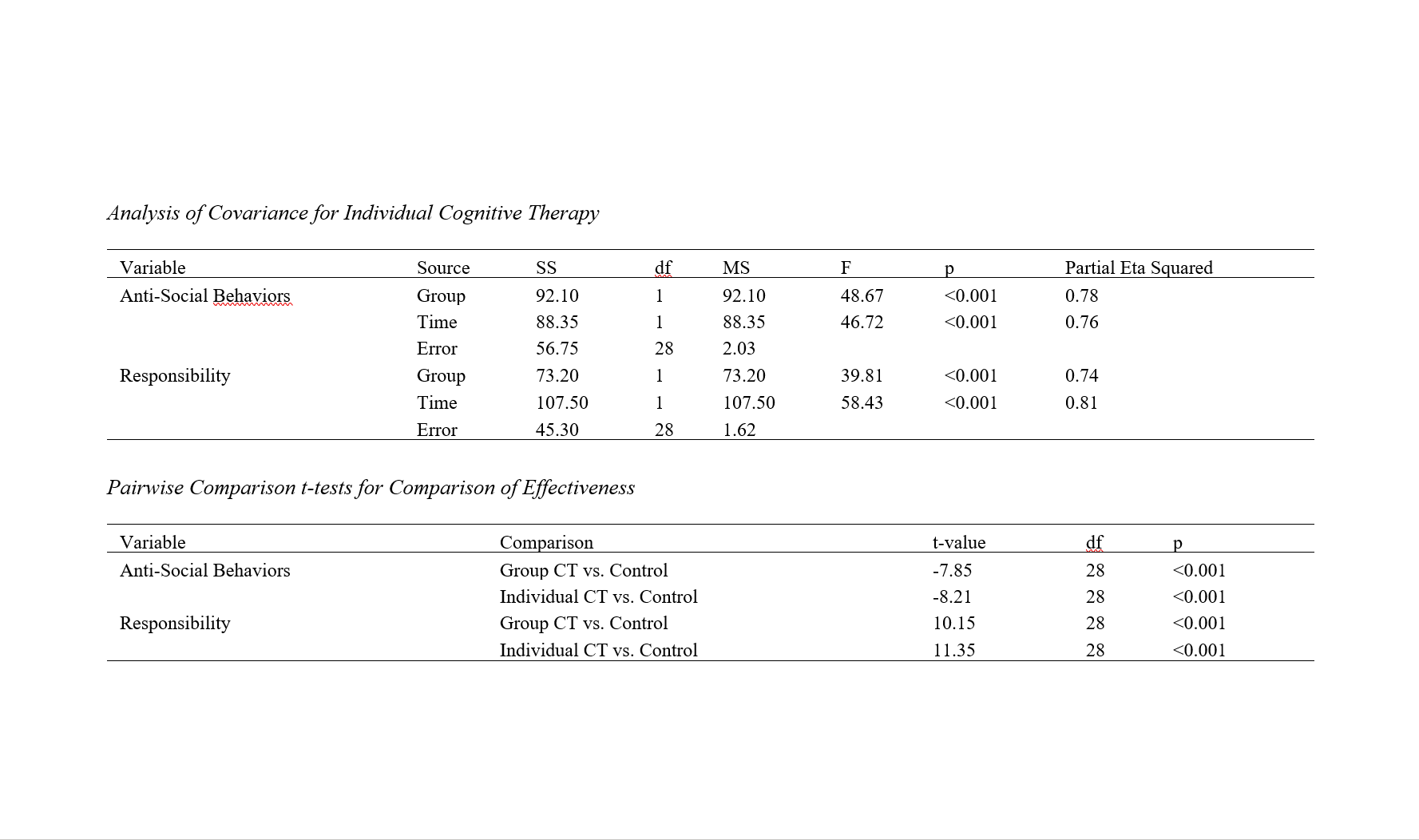Comparative Efficacy of Group and Individual Cognitive Therapy for Adolescents' Anti-Social Behaviors and Responsibility
Keywords:
Adolescents, cognitive therapy, group therapy, individual therapy, anti-social behaviors, responsibilityAbstract
Objective: This study aimed to investigate the comparative effectiveness of group and individual cognitive therapy interventions in reducing anti-social behaviors and enhancing responsibility among adolescents.
Methods and Materials: Forty-five male adolescents aged 12 to 18 years from Sari, Iran, were randomly assigned to group cognitive therapy, individual cognitive therapy, or a control group. Participants completed pre-test and post-test assessments of anti-social behaviors and responsibility using standardized measures. Analysis of covariance (ANCOVA) and pairwise comparison t-tests were conducted to evaluate treatment effects.
Findings: Both group and individual cognitive therapy interventions yielded significant reductions in anti-social behaviors (Group CT: M_pre = 26.35, M_post = 19.65; Individual CT: M_pre = 25.80, M_post = 18.90) and increases in responsibility (Group CT: M_pre = 30.10, M_post = 35.25; Individual CT: M_pre = 29.85, M_post = 35.60) from pre-test to post-test (p < 0.001). Pairwise comparison t-tests indicated significant differences between intervention groups and the control group in both outcome variables (p < 0.001).
Conclusion: The findings suggest that both group and individual cognitive therapy interventions are effective in addressing anti-social behaviors and promoting responsibility among adolescents. These results underscore the potential of cognitive therapy approaches to improve behavioral functioning and enhance adolescents' well-being.
Downloads

Downloads
Additional Files
Published
Submitted
Revised
Accepted
Issue
Section
License
Copyright (c) 2024 Khosro Ebrahimi Taghizadeh (Corresponding Author); Shah Moradov Hassan (Author)

This work is licensed under a Creative Commons Attribution-NonCommercial 4.0 International License.








